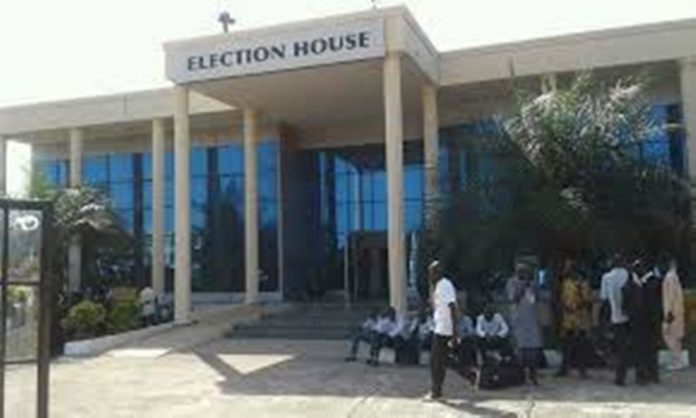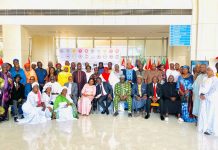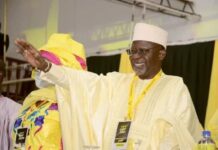By Nelson Manneh
The Independent Electoral Commission of The Gambia has commenced a major internal review of its operations and future direction, validating a five-year strategic plan that will guide the country’s electoral management through 2029.
The three-day validation workshop, which began Monday, June 23, 2025, was held in collaboration with the European Union and the United Nations Development Programme (UNDP) under the auspices of the EU-UNDP “GREAT” project. The initiative is designed to strengthen electoral systems, build institutional capacity, and ensure operational preparedness for the 2026 presidential election, as well as legislative and local government elections scheduled for 2027.
The new Strategic Plan (2025–2029) is intended to consolidate the achievements of past electoral cycles while addressing newly emerging challenges, including the need for inclusive political participation, improved electoral integrity, and enhanced voter confidence.
According to officials, the validation process offers the Commission’s leadership and technical teams a rare opportunity for focused internal dialogue — to review past performance, identify gaps, and refine future priorities.
“This strategic planning process reaffirms the Commission’s commitment to excellence, professionalism, and service to the people of The Gambia,” said Joseph Colley, Vice Chairman of the IEC, during the opening session. “It reflects our shared vision to continuously strengthen electoral integrity and public trust in democratic processes.”
The validation workshop covers a range of strategic themes: from institutional capacity building and digital modernisation to communication, stakeholder engagement, and electoral logistics. Participants are expected to produce a final version of the Strategic Plan that is results-oriented, inclusive, and responsive to evolving political and technological realities.
Officials say the plan will not only serve as a guiding framework for the Commission’s activities but also as a tool for mobilising resources from national and international partners to support election operations.
UNDP’s James Monibah, Project Manager of the EU-UNDP GREAT Project, emphasised the depth of the partnership between the UN body and the IEC.
“In The Gambia, UNDP has provided significant support to the IEC to strengthen the country’s electoral infrastructure and advance its democratic processes,” Monibah said. “Between 2021 and 2023, UNDP refurbished and equipped several regional IEC offices, including those in Kanifing, Brikama, Kerewan, Mansakonko, and Basse, thereby enhancing the Commission’s operational efficiency and preparedness for future elections.”
He added that UNDP’s electoral support is rooted in its commitment to human rights, transparency, and gender equality across all aspects of electoral engagement.
The Gambia’s election management body has faced increased scrutiny in recent years, particularly over voter registration processes, election logistics, and inclusivity. The development of a robust and forward-looking strategy is seen as a key step toward rebuilding public trust and preparing for a new political cycle under heightened democratic expectations.
As the 2026 election draws closer, IEC officials say the final version of the strategic document will be widely shared with stakeholders, including political parties, civil society organisations, media institutions, and international observers.
“This is not just about ticking boxes or producing another document,” a senior IEC official told Foroyaa on condition of anonymity. “It’s about delivering on the constitutional promise of credible elections that reflect the will of the people.”
The strategic validation comes at a pivotal moment in The Gambia’s democratic evolution, as citizens look to institutions like the IEC not only to manage elections, but to guarantee transparency, neutrality, and inclusive political participation in a fragile but steadily maturing democratic space.



















